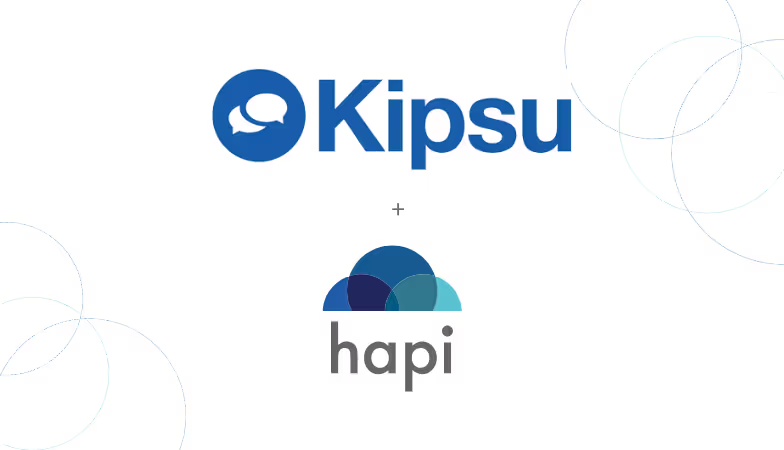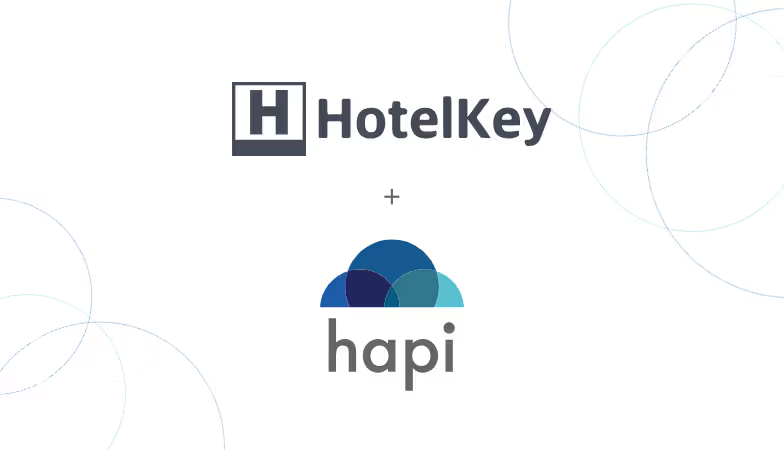The Real-Time Data Problem in Hospitality and Why It Matters
Data is the backbone of modern hospitality, but for many hotels, accessing and using it in real time remains a major challenge. While other industries have embraced instant data processing, hotels often struggle with outdated systems, fragmented data sources, and slow-moving integrations.
Hapi CEO, Luis Segredo, believes that solving the real-time data problem is key to improving guest experiences, increasing operational efficiency, and staying competitive in a fast-moving digital world.
Why Real-Time Data Matters in Hospitality
Speed matters, especially when it comes to guest interactions. Imagine a guest checking into a hotel, only to find that their room upgrade request was never processed because the system updates overnight instead of instantly. Or a hotel running out of clean rooms because housekeeping data isn’t updated in real time.
Delays like these lead to frustrated guests, missed revenue opportunities, and operational inefficiencies. Hotels that can access and act on data in real time have a significant advantage, whether it’s offering personalized service, optimizing pricing, or improving back-of-house operations.
The Biggest Challenges with Real-Time Data
So why is real-time data still a struggle for many hotels? Segredo identifies a few key barriers:
1. Fragmented Systems and Disconnected Data
Hotels rely on multiple systems: Property Management Systems (PMS), Customer Relationship Management (CRM) platforms, revenue management tools, housekeeping apps, and more. Unfortunately, these systems often don’t communicate well with each other, leading to data silos that prevent real-time access.
"Data is everywhere, but it’s not always accessible," Segredo explains. "If a system only updates every few hours, you’re already behind."
2. The Cost and Complexity of Integrations
Even when hotels want to connect their systems, integrations can be expensive and time-consuming. Traditional API connections require significant development work, and some legacy systems weren’t built with easy data sharing in mind.
Hapi’s approach to this challenge is to stream data from property-level systems to the cloud in near real-time, creating a single, normalized data layer that makes information accessible when it’s needed.
3. Slow Data Processing Leads to Missed Opportunities
Even if a hotel collects the right data, delays in processing it can reduce its value. If guest preferences, booking trends, or operational updates take too long to sync, hotels lose the ability to act in the moment.
For example, AI-driven personalization only works if the data behind it is current and accurate. If a guest’s preferences are updated after they’ve already checked out, the opportunity for a tailored experience is lost.
Solving the Real-Time Data Challenge
The good news? Technology is catching up. Hotels that invest in cloud-based platforms, open integrations, and real-time data processing can unlock new levels of efficiency and personalization.
By making data instantly accessible across systems, hotels can:
✅ Improve guest experiences – Personalized offers, faster service, and seamless stays
✅ Increase operational efficiency – Better room availability tracking, optimized staff workflows
✅ Maximize revenue opportunities – Smarter pricing, more relevant upsell offers, better inventory management
The Future of Hospitality Depends on Real-Time Data
As the industry evolves, real-time data will become a necessity, not a luxury. Hotels that can act instantly on guest preferences, market trends, and operational updates will stand out in a competitive landscape.
"The future of hospitality isn’t just about collecting data…it’s about using it at the right time," Segredo says.
The question is: Is your hotel ready to move at the speed of today’s guests?
Related Posts

Simplify the complex hotel tech landscape
Looking to make the most of your data or better connect systems?









.svg)
.svg)







.svg)














.svg)



